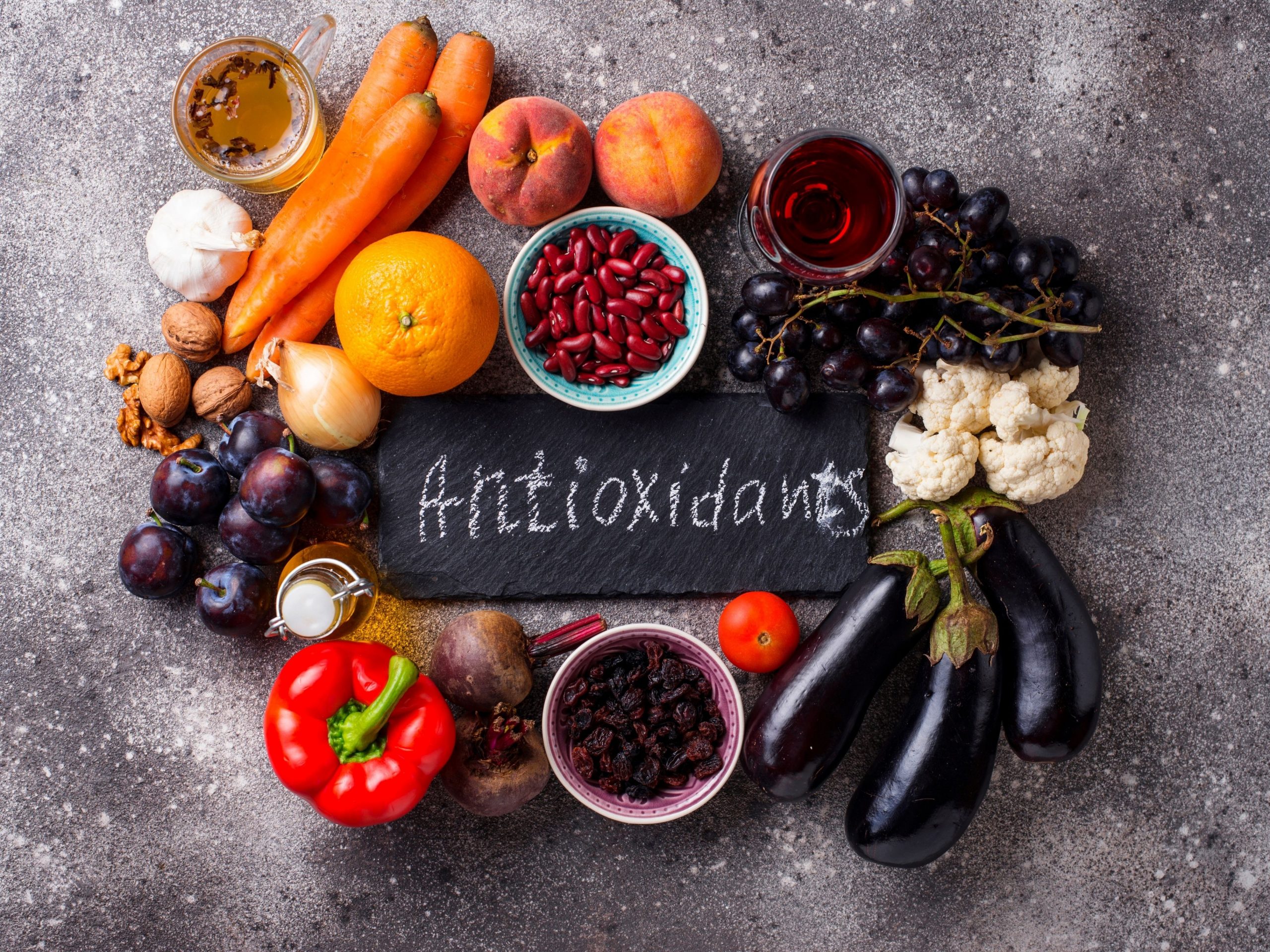Food is the best source of antioxidants
As we breathe, we also oxidise. Oxidation is a normal chemical process of your body. It is the response of unstable molecules known as free radicals. But when free radicals start to build up (oxidative stress), they need to be neutralized in order to avoid their negative effects. But don’t worry, the Antioxidants in your diet are here to the rescue!
What are free radicals?
When you breathe, oxygen particles get into your body and go to your cells. Free radicals are oxygen-containing molecules with an uneven number of electrons. They can cause large chain chemical reactions in your body because they react so easily with other molecules due to the uneven number of electrons which makes them highly reactive. When free radicals react to oxygen molecules is what we know as oxidation.
What is oxidative stress?
Oxidation is a normal body process. It can help fight pathogens, hence reducing the risk of infections. However, Oxidative stress happens when there is an imbalance between free radicals and antioxidants (more free radicals than antioxidants).
Oxidative stress has negative effects on the body. There are some of them:
1.The oxidative ions attack our healthy cells instead of germs.
2.The free radicals damage your cell membrane and DNA. In other words, this process accelerates aging.
3.Free radicals damage fatty tissue, DNA, and proteins in your body. They make up a large part of your body. This damage can increase the risk of several diseases over time. These include:
- Diabetes
- Atherosclerosis (hardening of the blood vessels)
- Inflammatory conditions (arthritis)
- Hypertension (increased blood pressure)
- Heart disease
- Neurodegenerative diseases (Parkinson’s or Alzheimer’s)
- Cancers
What is the function of antioxidants?
As we mentioned before, your body needs balance between free radicals and antioxidants. As a result, your body will work properly. Antioxidants are compounds/substances produced in your body and found in foods. They help prevent and defend cell damage caused by free radicals.
What antioxidants should I consume?
The best sources of antioxidants are fruits and vegetables. Foods that are particularly high in antioxidants are often referred to as a “superfood” or “functional food.”
Some of the most important antioxidants that you must consume are:
Vitamin A: Dairy products (try organic), eggs, and liver.
Beta-carotene: Brightly colored fruits and vegetables, such as carrots, peas, spinach, and mangoes.
Vitamin C: Most fruits and vegetables, especially berries, oranges, and bell peppers.
Selenium: Whole grains (rice, wheat, corn), nuts, eggs, cheese, and legumes.
Vitamin E: Nuts and seeds; vegetable extra virgin oils (olive, coconut, avocado); and green, leafy vegetables (spinach).
Lycopene: Pink and red fruits and vegetables, including tomatoes and watermelon. When tomatoes are cooked it is easier for the body to absorb the antioxidants.
Lutein: Green, leafy vegetables; corn, papaya, and oranges.
Selenium: Whole grains (rice, wheat, corn), nuts, eggs, cheese, and legumes.
What products should I eat in order to get more antioxidants?
In a few words, all of them (fruits, vegetables, nuts, etc.). However, there are foods that studies have shown that are high sources of antioxidants, some of them include:
- Berries, especially Blueberry/strawberries/raspberries.
- Kale
- Red cabbage
- Beets
- Artichokes
- Black chocolate
- Nuts, specially pecans
- eggplants
- Legumes such as black beans or kidney beans
- Green and black teas
- Goji berries are the dried fruits of two related plants, Lycium barbarum and Lycium chinense.
- Red grapes
- Pomegranates
- Broccoli
A final word
- The best source of antioxidants is real food. If you want to take supplements, ask your GP first.
- Try to include a fruit or a vegetable every time you eat (meals and snacks).
- Have a cup of green, black or matcha tea per day.
- Look at the colors on your plate. If it is rich in colors, it is rich in antioxidants.
- Turmeric, cumin, oregano, ginger, clove, and cinnamon not only spice up the flavor of your meals, but also add antioxidant content.
- Snack on nuts, seeds, especially Brazil nuts, sunflower seeds, and dried fruit, but choose those with no added sugar or salt.
We hope this information is useful for you. If you have any questions about our treatments, please contact us. You can find us in Mill Hill Broadway and Islington. If you like this blog, please share!
We are always happy to help!
References:
https://www.healthline.com/health/oxidative-stress#effects
https://www.medicinenet.com/what_happens_in_oxidation/article.htm
https://www.healthline.com/nutrition/foods-high-in-antioxidants#TOC_TITLE_HDR_12
https://www.medicalnewstoday.com/articles/301506#diet-



